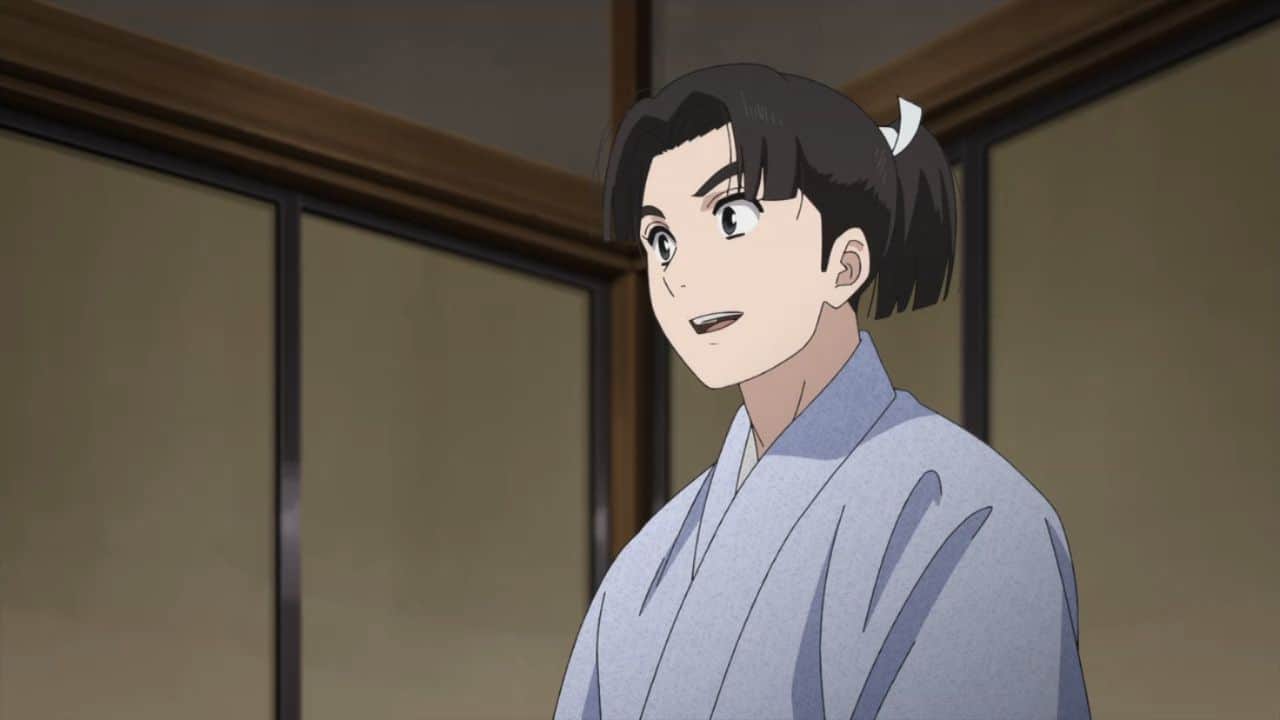Well, that was an incredibly depressing episode any way you look at it. Rape, cat murder (by one of the “good” characters), infant mortality, bullying – it was pretty much all there. The Yuunoshin arc may have led to an impression that this series was ultimately hopeful, but he was a false main character and that may have been a false impression. There’s certainly nothing in Arikoto’s story so far to suggest there’s anything redemptive to be found there. But it is a long way from being over, so it’s too early to say.
Arikoto is legit, to be sure. He’s completely genuine in his beliefs, even if he’s been forced to renounce them. He’s starting to become popular with the shogun (as is Waka-Murasaki). That only serves to make Arikoto extremely unpopular with the other men of the Oooku, of which there are only three at this point in the story. They see him (rightly) as a threat and (wrongly) as a hypocrite, but he’s basically untouchable directly. So they take their envy – and lust – out on Gyokuei, who they abuse both sexually and otherwise.
The irony is that it’s Arikoto who’s woefully out of place here. In fact Gyokuei is much better-suited to this savage environment despite his youth – he’s more wise to the ways of the world. And, as we’ll soon see, not wedded to an overriding set of Buddhist principles of behavior. He takes the abuse and plots his revenge, which eventually takes the form of killing the honorable cat and framing the ringleader of the Oooku trio for the crime. And it works – Arikoto’s intervention prevents the shogun from killing the man on the spot, but he’s forced to commit seppuku. That smile on Gyokuei’s face is a cold one, and it’s meant to be.
Iemitsu herself is pretty messed up to be sure. We don’t know that the story of her putting the man who took her virginity to death (by her own hand) is true but there’s no reason to believe otherwise. She’a also the one who’s been going around chopping off town girls’ hair – through the proxy of the master of swords (who cut down Arikoto’s attendant). That master came to respect Arikoto after he completed a thousand practice swings (after being assigned five hundred) in his first sword lesson, but he’s clearly unbound by any moral or ethical bonds when it comes to Iemitsu’s orders.
The question here, I suppose, is whether Arikoto will influence the shogun in a positive direction or she’ll simply disappear deeper into her own sheltered world. She clearly prefers his company, and Gyoukei has succeeded through his treachery in strengthening his hand at court. But Iemitsu has a very twisted view of the world, which isn’t surprising under the circumstances. She’s a prisoner here too of course, and fully realizes that she’s intended as a placeholder and breeding stock until a “real” shogun can be born (I can’t but wonder about the circumstances of her daughter’s death). We know that’s not what the future holds of course, but she doesn’t.
Kasuga is at the root of all this, starting with her “seven meals” gambit when her son was a finicky child. That evolved over time into women (it failed), and now men for his daughter. It’s all part of this cocoon which Kasuga has created, and in which both Iemitsu and Arikoto are effectively imprisoned. While the specific circumstances are obviously fictional, in many ways this is not an entirely unrealistic depiction of the Japanese shogunate. Sometimes fantasy allows a writer to get away with a little more than they otherwise might, especially in a country like Japan…




